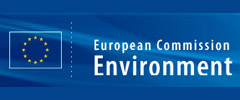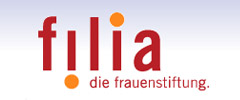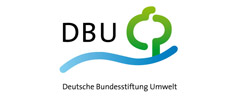Vision & Strategy
Our Vision: A Just and Healthy Planet for All
We envision a world in which gender equality has been achieved and all women, men and children live in dignity, and share responsibilities for a healthy environment, and a just and sustainable world.
Our Mission: Bringing women's priorities into policies and actions
Women Engage for a Common Future (WECF) is an international network of over 150 women’s and civil society organisations implementing projects in 50 countries and advocating globally to shape a just and sustainable world; our Common Future
Our Overall Goal: Achieving an Equitable and Sustainable Future
We strive for balancing the environment, health and economy, taking the different needs and perspectives of women and men into account. We enable women and men to participate at local and global levels in policy processes for sustainable development. Our network’s activities are based on our partners’ own visions and needs. WECF implements solutions locally and influences policy internationally.

Our History
Women in Europe for a Common Future (WECF) was officially registered as a foundation in 1994 in the Netherlands following an initiative of European women at the 1992 Earth Summit, to work together for sustainable development and to give a voice and organisation to the "Women Major Group" of Rio Agenda 21. WECF's philosophy of enabling local project partners and network members to implement projects together, to share experiences within the network and to learn from each other, soon proved to be successful. Today, WECF's expertise is well-known internationally.
Issues & Projects
Our policy work at national, European, UN and international level brings women’s perspectives to policymakers and into implementation of policies at national and local level.
WECF has expertise in capacity building, policy advocacy and outreach:
1) Capacity building
- Training, assessment and monitoring capacity of network organisations
- Sub-granting to local women’s organisations to demonstrate sustainable solutions based on their priorities
2) Policy advocacy
- Effective and meaningful policy participation of network organisations in national policies and plans
- Strengthening of global women’s movements to ensure impactful policy advocacy by women’s civil society organisations
3) Outreach campaigns
- Awareness raising, outreach and campaigning to change mind-sets and help create an enabling environment
WECF has expertise in three thematic issue areas:
1) Gender Equality in Sustainable Development policies
- Sustainable Development Goals (Post-2015)
- Climate policies and implementation mechanisms (UNFCCC)
- Environmental, chemicals and waste management policies (UNEP)
2) Creating Sustainable and Safe Circular Economies (Food/Water/Energy)
- Gender Equitable Technology design and assessments for safe access to food, water and energy
- Women’s leadership in Planning, Operations and Monitoring for Sustainable food, water and energy solutions
- Women’s income generation and financial mechanisms for sustainable food, water and energy solutions
3) Equitable Mitigation Strategies and Plans (climate/chemicals/sanitation)
- Gender equitable climate change mitigation strategies and plans
- Mitigating women’s health impacts from chemicals, waste, radiation and other pollution
- Women’s priorities for sanitation, hygiene and menstrual hygiene policies and actions
Ethical code of conduct
To fulfil this mission WECF expects its staff, members, partners, consultants and other alliances to believe in and act in accordance with the principles set out in this code of conduct. Download the ethical code of conduct here.
Sponsors & Donors
WECF is an non-profit, non-governmental organisation, coordinated from the Netherlands, Germany and France. WECF receives donations from foundations, private donors and institutional sponsors.
Our Organization
The WECF Network is a network of 150 member organizations and individual members who share a common concern to promote a just and healthy planet for all, strengthen the role of women and promote a gender and rights based approach in environment and sustainable development policy and implementation. An International Board of Trustees bears the final responsibility for the strategic and financial management of the Foundation WECF. The organization maintains three offices (in the Netherlands, Germany and France) with about 40 part-time staff members.
Our Network
Over the past 20 years, WECF has developed into an international network where capacity building of the member organizations, joint implementation of demonstration projects, and exchange of experience have become the basis of reciprocal cooperation. In order to reach its goals WECF implements projects in partnership with local organizations in 50 countries. Project partners are usually, but not always, members of the network, and there exists a clear distinction between membership (common advocacy) and partnership (joint project implementation). The WECF Members and Activity Map shows the exact location of all WECF projects, members, partners and offices.
Get Involved
There are many ways to get involved in WECF's work. You can become a WECF member, donor or strategic partner. As an individual you can become a Friend of WECF, volunteer, donate and contribute in many other ways to our work and network.


































